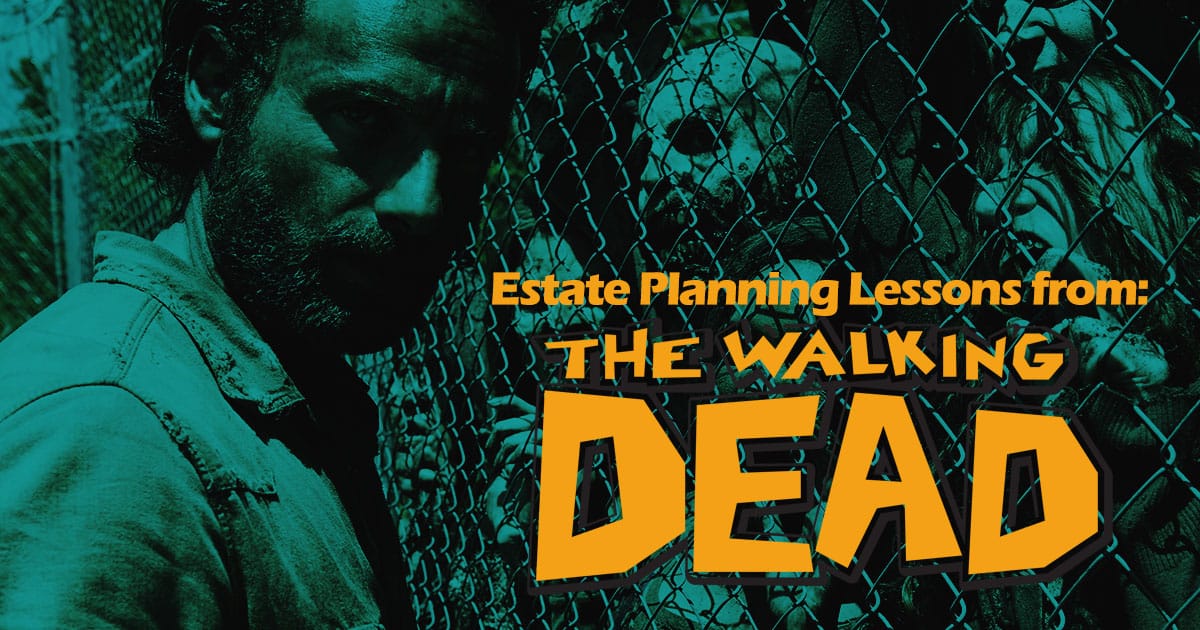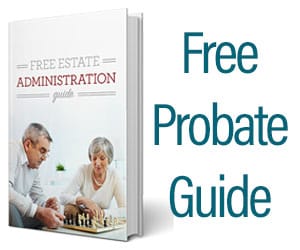“It went the way it had to, the way it was always going to.”
– Tyreese, Walking Dead
“Beth wanted to get him here. She wanted to get him back home. This was for her. And it could have been for us, too.”
– Rick Grimes, Walking Dead (Rick musing on why he traveled across three states after Beth died.)
“I don’t take chances anymore.”
– Rick Grimes, Walking Dead
The AMC series The Walking Dead has attracted a viewership broader than the typical horror/sci-fi base, arguably because of its ability to speak to the realities of normal life that we often choose to ignore. In the world of The Walking Dead, the luxury of ignoring fundamental realities of life and death no longer exists. So we watch with fascination as our characters struggle through having to squarely face the consequences of their actions or omissions.
Over the course of the various seasons, the decision, or failure, to plan ahead speaks loudly to the audience. When Rick settles his group in the protective confines of a prison, they are lulled into a sense of security that they don’t even realize until that security is irrevocable broken. When they are forced to evacuate, it becomes quickly apparent that there is not a plan for such an evacuation or for a fall-back point; the next season and a half is a slow, drawn out reunification of the group. With a plan in place, much of the suffering could have been mitigated, or at least it could have been faced in unison as a group. As the seasons progress, we see Rick’s tolerance wane towards those who don’t see the world as it is.
Without delving into every plot that carries this theme, the show forces us to grapple with the emotional hurdles we all know we could be forced through, and in The Walking Dead what that looks like when all control is lost: placing children into the hands of strangers because parents died first; dealing with medical emergencies when it is unclear whether the injured want medical help anymore; how to honor those who have passed. Thankfully, we do not live in a world in which all control has been lost and in the same way we shake our heads at those in the show who cannot muster the strength to face reality, we need to look inward and ask ourselves whether we are guilty of the same.
Unlike in the world of The Walking Dead, each of us has the ability in this world with structure and law to make clear how our families should behave when tragedy strikes. However, this truth remains the same: if we wait and hope that we have more time later, or that our resources should be spent elsewhere for the time being, we put others at risk. The following is a quick highlight of the bare essentials that each responsible adult should have, or at least have thought through and ruled out only with the most careful consideration:
- A “living will,” i.e. an instruction in advance of death telling physicians and family when medical treatment is no longer required. This can potentially save your family from unnecessary medical expense or even the heartache of making a life and death decision;
- A Health Care Power of Attorney, i.e. an appointment of an individual to act on your behalf when you cannot, as to your medical decisions. Without one of these, your family may have to go through expensive legal proceedings to determine who should have this authority, even if your medical incapacity is for a short period of time;
- A (financial) Power of Attorney, i.e. an appointment of an individual to obtain information about you and to act on your behalf as to your assets. This is the “standard” Power of Attorney that most people have heard of, though many are unfamiliar with the limitation to financial concerns. Similar to the Health Care Power of Attorney in its importance in avoiding court involvement, its expansiveness and potential for abuse require very careful consideration (and these concerns are not avoided by ignoring the subject);
- A Will and potentially, Trust documentation, i.e. documents which lay out the plan for your family as to what to do with things when you pass away, and who has authority to carry out wishes, care for minors or incapacitated adults in your care. Failure to have a plan in these regards can result in significant financial loss, significant delay in getting support to those who need it, and confusion among family members that can (and often does without planning) result in broken relationships among family members.
Rick Grimes at one point of apparent safety looked at his minor adult son and said: “You are not safe. No matter how many people are around, or how clear the area looks, no matter what anyone says, no matter what you think, you are not safe. It only takes one second. One second and it’s over. Never let your guard down, ever. I want you to promise me.” This is disturbing to us on its face because we can’t fathom having such a conversation with a child, but more deeply it bothers us because we know it is true all the time, but our circumstances appear to offer us the luxury of ignorance. Our lives are not as extreme, but we do no one any favors when we fail to plan for reality of set-backs whether short-term, long-term or permanent. Do those you love a favor, be like Rick, don’t take chances anymore.
Adam Hopler is an Attorney at Hopler, Wilms, & Hanna, PLLC where he has been providing estate planning legal guidance for the last five years. He is a long-time secret (no longer) fan of The Walking Dead for purely academic reasons. This article is not meant to provide legal advice. If you have specific questions, please contact an attorney.


